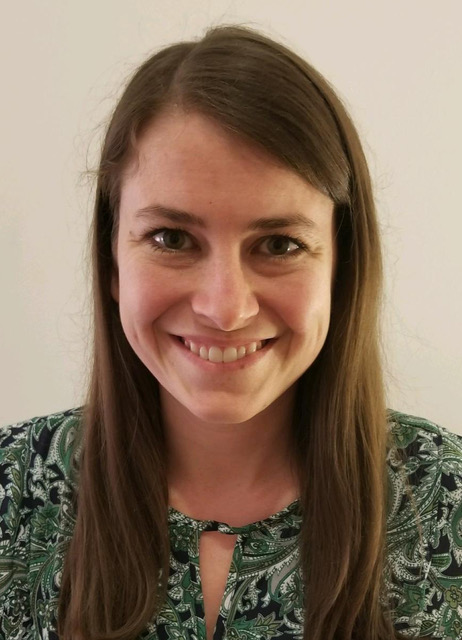Current WGA Members:
|
|
|
Kathryn ‘Katie’ Przybysz, M.S.Katie is a 7th year PhD candidate in the Behavioral Neuroscience area. Her broad research interests are the long-term effects of alcohol exposure during the prenatal and adolescent periods and how these exposures confer increased vulnerability to addiction. Outside of research, she is also passionate about sparking and maintaining interest in science, as well as improving science literacy, among individuals of all ages. |
Meredith Gamble, M.S.Meredith is a fourth-year Behavioral Neuroscience student. Her research focuses on the long-term impact of prenatal and early-life drug exposures, particularly the long-term impact of prenatal opioid exposures on learning and memory in adulthood. Outside of research, she enjoys hanging out with her dog, hiking, photography, and rock climbing. |
|
|
|
Maggie M. Parker, M.S.Maggie M. Parker, M.S (she/her) is a fifth-year clinical science graduate student studying sexual assault and intimate partner violence under the supervision of Dr. Richard Mattson. She is a first-generation college student who is passionate about increasing diversity in science through empowerment and mentoring. |
Mary Spodnick, M.SMary is a 3rd year Behavioral Neuroscience student working in Dr. Anushree Karkhanis's lab. She is interested in studying the neurobiology of affective disorders and addiction; her Master's project focused on the role of dopamine and serotonin in the nucleus accumbens in regulating affect and motivation to seek reward. In her spare time, Mary loves to relax with a videogame, make art and/or craft, cook and enjoy great food, and spend time with her cat, Sigmund. |
|
|
|
Emily Blakley, M.SEmily Blakley is a 5th Cognitive psychology student, working under Peter Gerhardstein. Emily’s main research interest is the development of vision in infants, toddlers and young children and she currently investigates object perception and attention allocation in kindergartners. Emily is the Union Rep for GSEU at Binghamton University. Outside of university life, Emily horseback rides, ice skates and practices yoga. |
Sage FeltusSage Feltus is a second-year clinical psychology graduate student. Sage's research focuses on determinants of high-risk substance use in college students and identifying psychological mechanisms for intervention under the supervision of Dr. Nadine Mastroleo. |
 |
|
Melissa GatesMelissa Gates is a second-year clinical psychology study. Melissa’s main research interest is examining how emotional distress and trauma impact relationship functioning. In addition, she is interested in individual and dyadic emotion regulation. |
WGA Alumni
One of the goals of graduate school is to one day no longer become a graduate student! But we still want to thank members who helped shape this committee even though they are currently living their best non-graduate school lives!
|
|
|
Kathryn “Kate” Lanza, PhD.Kathryn “Kate” Lanza graduated with her PhD in Spring 2020. Her dissertation was focused
on the role of dopamine receptors in the side effects associated with Parkinson’s
Disease treatment. Currently, Kate is a postdoctoral fellow at Feinberg Medical School
at Northwestern University. Besides research, Kate is passionate about science communication
and accessibility. She firmly believes that science communication and public engagement
is an essential part of being a scientist and ultimately makes science more inclusive,
more accessible, and more rigorous. |
Hannah Morton, PhD.Hannah Morton previously completed a bachelor of science in psychology with a neuroscience concentration at Pennsylvania State University in 2009 and earned a master of science degree in psychology from Mississippi State University in 2012. Her primary interest is in the experience of children with Autism Spectrum Disorder (ASD) and their families. Her research focuses on the experience of bullying in ASD and how that may differ from non-ASD children. Clinically, she is dedicated to serving families of children with mental health difficulties including through differential diagnosis of ASD and other childhood disorders and developing and implementing interventions for social communication skill building. Hannah believes involvement of the family system is a crucial component to best support childhood psychopathology. In her free time, Hannah enjoys spending time at the gym, at a concert, or outside with her family and their two dogs. |
 |
 |
Ariadne "Ari" Lyon, M.S.Ari Lyon is a 4th year clinical psychology student, whose main research interest is finding ways to increase mental health literacy in minority and disadvantaged populations. She does clinical work primarily with children and teens with a variety of clinical disorders. She has two cats and enjoys trying new baking recipes on the weekend. |
Summer Bottini, PhD.Summer Bottini earned her PhD in clinical psychology from Binghamton University in 2020 and is a doctoral-level board certified behavior analyst. Her area of emphasis is behavioral assessment and intervention for autistic children and adolescents. Summer's research aims to optimize training and supervisory practices to improve the dissemination and success of behavioral interventions. She is particularly interested in improving training efficiency and intervening on burnout among behavioral providers. She is the proud mother of a pet pig, enjoys baking, and is on a continual adventure to find the best diner. |
 |
|
Cope Feurer, PhD.Cope Feurer (she/her) graduated with her PhD in clinical psychology from Binghamton University in 2020 and is currently a postdoctoral research fellow at the University of Illinois at Chicago, Department of Psychiatry. Her research utilizes a multi-method approach to examine individual differences in stress generation and reactivity among youth at risk for depression and focuses on how laboratory-assessed markers of risk generalize to real-world processes. In her free time, Cope enjoys hiking, being outside, and spending time with friends. |
Siara Rouzer, PhD.Siara Rouzer graduated from the Behavioral Neuroscience program in 2020. Her research investigated the neurochemical impairments engendered by prenatal alcohol exposure which may contribute to the development of anxiety disorders in adolescents. |








